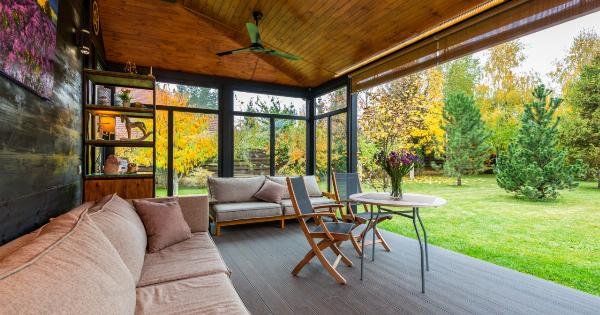Fans have been around for centuries and have been utilized both for their cooling effects and for entertainment purposes.
However, as with many things, these mechanisms have their downsides, and it is imperative that we recognize them in order to make informed decisions about their usage. This article will examine the fickle nature of fans, their cooling, and harmful effects, and what we must be mindful of.
Cooling Benefits of Fans
Fans have a range of cooling benefits that are impossible to deny. In summer, a fan can help to circulate air, thus cooling down both you and the room. It promotes air movement to evaporate sweat from your skin and reduce body temperature.
As a result, the use of fans is a cost-effective alternative to air conditioning, which can be quite expensive.
While a fan does not remove heat from the air, it works by moving the air around to disperse heat via convection. In this way, a fan also helps to regulate moisture levels, preventing the build-up of mold and mildew in poorly ventilated spaces.
This is important to those with asthma or allergies, as these conditions can be exacerbated in damp environments.
Health Risks Associated With Fans
Fans come with their own set of health risks, which we should not take lightly, particularly when used improperly.
One of the biggest health risks we face is as a result of fans’ tendency to dry out our eyes, mouths, and noses, which can cause irritation, respiratory issues and even infections. This is because fans can stir up dust, mold, and pollen particles, making it difficult for people with allergies or respiratory problems to breathe.
The fan distributed air can cause sore joints and muscles, as well, as can lower temperatures, leading to an increase in inflammation and pain.
Additionally, those who wake up with stiff joints in the morning will want to think twice about sleeping with a fan directly blowing on them throughout their sleep cycle.
Another health risk is the noise created by fans. Studies have indicated that loud noise from fans can lead to hearing loss and cardiovascular diseases such as increased heart rate, high blood pressure, and fast, shallow breathing.
Energy Efficiency and Carbon Footprint of Fans
When it comes to energy efficiency, fans are much more environmentally friendly compared to air conditioning. They are considered better at reducing greenhouse emissions, as they are less energy-consuming and produce no ozone-damaging gases.
Commercial manufacturing sites can benefit from this by reducing gas emissions produced by the manufacturing process.
Fans are an excellent measure towards conserving energy. Using fans can reduce energy consumption by circulating the cooled air from the air conditioner evenly in a room rather than placing the thermometer setting too low on the air conditioner.
Besides, the majority of fans are relatively energy-efficient, providing low-energy consumption, both in their use of electricity and operating speeds.
The Bottom Line
The use of fans has both pros and cons. Fans are not only useful for their cooling effect in our homes and offices, but they also have some impact on our environment.
However, it is important to recognize the potential harmful side-effects when using a fan.
To enjoy the cooling benefits of using a fan sustainably, we need to employ the following precautions:.
- Avoid leading the fan directly towards you and refrain from placing it too close to where people are sitting, sleeping, or working
- Make sure to clean the fan regularly to prevent mold, mildew, and other microbes from growing
- Invest in a fan with noise-reducing capabilities, especially if you use the fan in your bedroom
- Set the fan to a level that ensures proper ventilation and air circulation in the room without drying out your skin or causing breathing problems
When used with proper care, fans can aid in alleviating many of our issues, including heat, humidity, and bad air quality.
Overall, make sure to consider your health and well-being, as well as the energy and cost-saving benefits, when deciding to use a fan in your home or office.






























